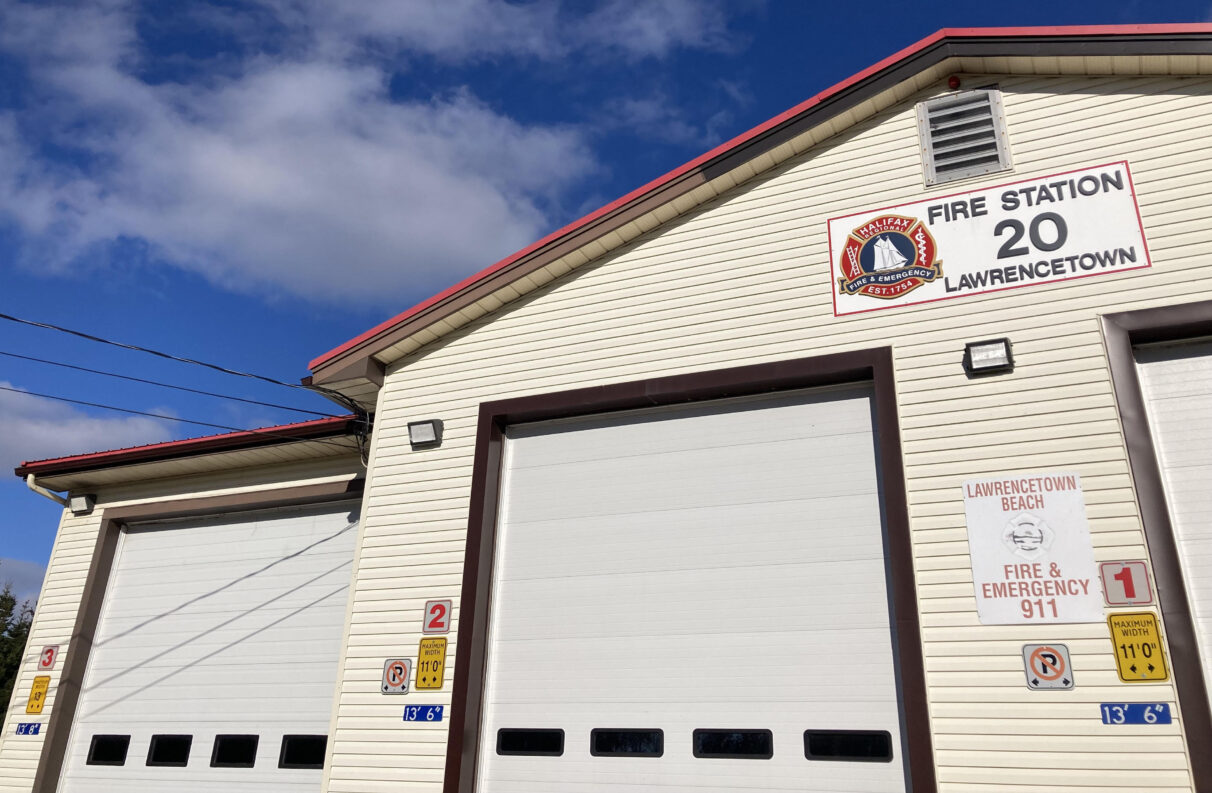Volunteer first responders get provincially funded mental health support
Questions remain on how the $75,000 will be allocated over a two-year pilot program

caption
Hantsport Volunteer Fire Department could benefit from the new fund.Volunteer firefighters and search and rescue teams across the province will receive mental health support equal to career first responders starting Dec. 1, the province announced late last week.
The Nova Scotia Firefighter and Ground Search and Rescue Volunteer Assistance Program is a new pilot program offered through Telus Health, worth $75,000 over two years. It offers personal and family counselling that can be accessed as an employee assistance program, with phone operators available 24 hours a day.
“I think it’s going to be really good for our firefighters and ground search folks,” says Wendy Rafuse, chair of the Nova Scotia fire service volunteer Critical Incident Stress Management (CISM) team.
The province has not made it clear how the new program will complement the mental health support system already in place for volunteer first responders. The CISM team, made up of first responder peer supporters, offers group-centred psychological first aid after critical incidents and has done so for decades.
Volunteers requiring further support often have access to employee assistance programs (EAPs) through their halls. These are independently funded by fire departments at a cost of around $1,000 per year.

caption
Lawrencetown Fire Department, also volunteer, is a possible beneficiary to the program.If the province’s intention is to fund EAP programs for the 300 volunteer Nova Scotia fire departments, the $75,000 fund would need to reach $300,000.
“I don’t know how they are going to provide coverage for everyone at that cost,” says Rafuse. “That’s peanuts.”
Neither GSAR or fire service CISM were consulted in the design and implementation of this program, and questions remain. An email request for more information from a provincial government spokesperson had not been returned as of Wednesday afternoon.
“There needs to be a lot more information coming out to the members. How are people enrolled into this program? Are they enrolled as a department, or is it individual?” said Rafuse. Fire halls with EAP bills due as early as January need to know whether or not they will receive government coverage.
Regardless of the level of investment, Rafuse said she sees the program as a victory that will make the province’s 6,000 volunteer firefighters and 1,200 ground search and rescue volunteers’ jobs easier.
“If someone needs further mental health support, then it’s easy. We refer them to their employee assistance program,” says Rafuse. “It’s a lot easier than trying to get them into the public mental health system, which can take weeks.”
Ground Search and Rescue (GSAR) recipients are also enthusiastic. Paul Service, chief director of Halifax Search and Rescue sees this program alleviating stigma.
“The anonymity, the 1-800 number, I can definitely see that being picked up more by some of our members that maybe don’t want us to know that something’s on the go.”
Robin Campbell Bromhead, a researcher at Dalhousie University who studies mental health support in the volunteer fire service, is hopeful that once launched, the pilot program will support first responders in ways that CISM does not.
“It’s not always what happens on the call, sometimes it’s what happens at the halls and beyond,” she said.
“It’s not always what happens on the call, sometimes it’s what happens at the halls and beyond.” — Robin Campbell Bromhead, a mental health support researcher.
Often for the peer support CISM to be activated, there first needs to be a critical incident. The assistance program is available anytime for a range of supports, including marital and financial counselling.
“It’s not necessarily that one service is better than another. That’s why it’s nice to have a continuum of support,” says Campbell Bromhead.
When using the pilot program, volunteer first responders are advised to request counsellors with experience in public safety and trauma-informed practice and continue to use informal peer support already in place.
“Having both mechanisms open is going to certainly make our system more robust,” said Service. “Because I can tell you, there’s absolutely times when you have a bad call and you want to talk to somebody else in the team that’s been there.”
Mental health crisis line: 1-888-429-8167 (toll-free); it operates 24 hours a day, seven days a week for anyone experiencing a mental health crisis or people concerned about someone else.
About the author
Jacqueline Newsome
Jacqueline is a proud King's Master's student from Toronto who loves to write about matters of public safety.
